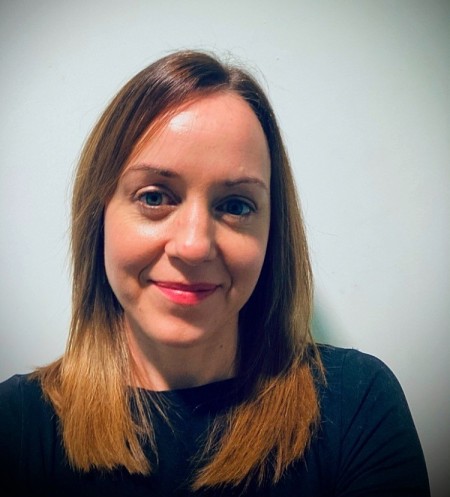Publish date: 14 March 2025
Cancer Clinical Nurse Specialist Day - Rachel Beaufort-Jones
Can you introduce yourself and your job role?
Hello, I am Rachel Beaufort-Jones and the Lead Clinical Nurse Specialist (CNS) for the Non Site Specific Symptoms Service (NSSS).
Can you give us an overview of your key day-to-day-duties?
The NSSS service investigates patients whose symptoms don’t easily fit into one of the other pathways. Presenting symptoms may include
• abdominal pain
• unintentional weight loss
• persistent fatigue
• loss of appetite
The aim of the NSSS is to investigate patients quickly with non-specific symptoms, so that serious problems such as cancers can either ruled out or be picked up at an earlier stage.
This service commenced in January 2022.
The NSSS service is nurse-led in terms of assessment, organising imaging and planning ongoing care and referrals to other sites. Three half day clinic sessions per week are offered at North Tyneside, Wansbeck and Hexham outpatient departments.
Why did you want to become a clinical nurse specialist?
Years ago, whilst working within paediatric oncology, I observed the work of the specialist nursing team and my interest in the job was sparked when I noticed their dedication to improving the patient journey specifically through holistic management. I realised that this alternative type of nursing care was able to provide an ability to care for patients over a longer period of time and with greater continuity of care. Specialist nursing care was able to bridge the gap between acute care and primary care, through provision of a first point of contact via the specialist nursing team. In addition, I admired the fact that they appeared to be extremely knowledgeable / experts within their field of practice, with a passion for teaching and motivating.
Initially, I undertook a MSc in Oncology and Palliative Care and became interested in the genetic aspects of cancer and started my career as a genetics nurse specialist, caring for patients with a cancer predisposition syndrome. After nine years of working in Genetics, I welcomed a new challenge of setting up a cancer exclusion service at Northumbria Hospitals and I have now run the NSSS service for over two years, which I am growing to love.
What’s the most rewarding thing about your role?
The most rewarding aspect of my role as a specialist nurse is that I feel I can play a pivotal part in ensuring that the patient journey is more streamlined with greater continuity of care. One of the best aspects the NSSS service is that the majority of patients who are referred in, voice that they feel listened to, and are no longer bouncing back and forth within primary care with destressing non-specific symptoms. I am blessed to be able to offer lengthy clinic slots which allow for thorough clinical assessments, which includes a physical examination and discussions regarding all aspects of their current condition. Patients benefit from becoming part of their medical decision-making process and are able to discuss multiple issues, which is vital when dealing with non-specific symptoms. I have recently completed my non-medical prescribing qualification, which will hopefully further contribute to improving patient care and reduce unnecessary delays in treatment.
What advice would you give to someone who is thinking of becoming a clinical nurse specialist?
I believe the CNS role to be very academic in nature and continuing professional development within this specialism is vital and will require dedication. Professional confidence is also an important aspect, as CNSs will need to wholeheartedly become advocates for their patients, and this requires becoming an important part of the medical decision process. The role is evolving and is now more established as a discipline than it has been in days gone by, which is very important as specialist nurses have a specialist skill set that deserves acknowledgement and should be valued. The level of responsibility is huge and must be shared, gaining support from other nursing and medical colleagues, so being a good team player is also a must. Being a CNS is incredibly rewarding but challenging at times. If anyone is giving it serious consideration, I would 100% give it a go!
